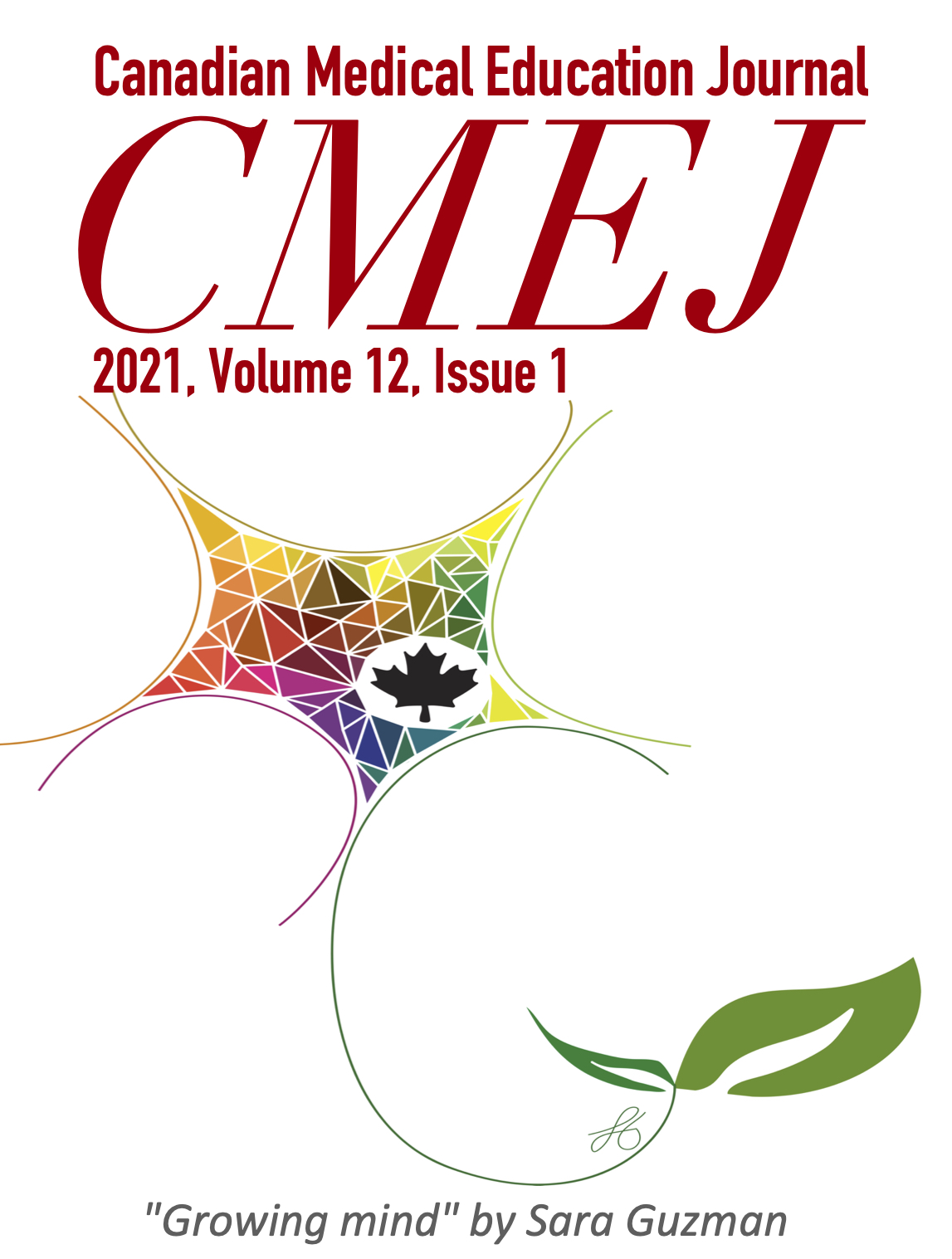Feedback on feedback: a two-way street between residents and preceptors
DOI:
https://doi.org/10.36834/cmej.69913Abstract
Background: Workplace-based assessment (WBA), foundational to competency-based medical education, relies on preceptors providing feedback to residents. Preceptors however get little timely, formative, specific, actionable feedback on the effectiveness of that feedback. Our study aimed to identify useful qualities of feedback for family medicine residents and to inform improving feedback-giving skills for preceptors in PGME training program.
Methods: This study employed a two-phase exploratory design. Phase 1 collected qualitative data from preceptor feedback given to residents through Field Notes (FNs) and quantitative data from residents who provided feedback to preceptor about the quality of the feedback given. Phase 2 employed focus groups to explore ways in which residents are willing to provide preceptors with constructive feedback about the quality of the feedback they receive. Descriptive statistics and a thematic approach were used for data analysis.
Findings: We collected 22 FNs identified by residents as being impactful to their learning; analysis of these FNs resulted in five themes. Functionality was then added to the electronic FNs allowing residents to indicate impactful feedback with a “Thumbs Up” icon. Over one year, 895 out of 8,496 FNs (11%) had a “Thumbs up” added, divided into reasons of: confirmation of learning (28.6%), practice improvement (21.2%), new learning (18.8%), motivation (17.7%), and evoking reflection (13.7%). Two focus groups (12 residents, convenience sampling) explored residents’ perception of constructive feedback and willingness to also provide constructive feedback to preceptors.
Conclusion: Adding constructive feedback to existing positive feedback choices will provide preceptors with holistic information about the impact of their feedback on learners, which, in turn, should allow them to provide more effective feedback to learners. However, power differential, relationship impact, and institutional support were concerns for residents that would need to be addressed for this to be optimally operationalized.
Downloads
Published
Issue
Section
License
Submission of an original manuscript to the Canadian Medical Education Journal will be taken to mean that it represents original work not previously published, that it is not being considered elsewhere for publication. If accepted for publication, it will be published online and it will not be published elsewhere in the same form, for commercial purposes, in any language, without the consent of the publisher.
Authors who publish in the Canadian Medical Education Journal agree to release their articles under the Creative Commons Attribution-Noncommercial-No Derivative Works 4.0 Canada Licence. This licence allows anyone to copy and distribute the article for non-commercial purposes provided that appropriate attribution is given. For details of the rights an author grants users of their work, please see the licence summary and the full licence.











